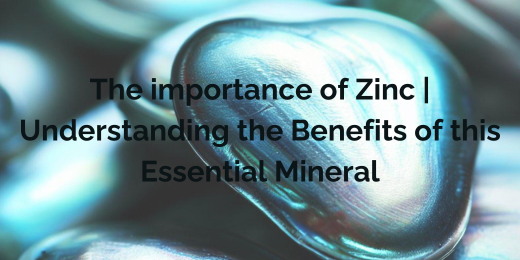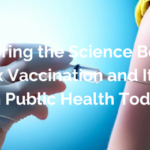Importance of Zinc
Zinc is one of the essential minerals for the body’s ability to maintain health. It is a trace mineral, meaning the body only needs minimal amounts. Still, it has a substantial impact on a variety of internal functions. Zinc is required for the effective function of the immune system, wound healing, cell growth, and cell repair.
It also promotes healthy skin, eyes, taste, and smell, as well as overall physical wellness. This article will go over the importance of Zinc in detail, including topics such as its health advantages on humans, the recommended daily zinc intake, and the types of foods that are high in zinc content. Similarly, understanding the importance of the immune system is key to appreciating how it safeguards our body against infections and maintains overall health.
The Health Benefits of Zinc for Humans
Zinc’s importance must be recognized because it involves many different bodily processes. Zinc’s potential to increase immune system performance is one of its most significant health benefits. It stimulates the creation of white blood cells, which the immune system requires to fight infections and other disorders. Zinc promotes cell formation and repair, hastening wound healing.
Zinc is required to create DNA and RNA, the building blocks of all creatures, and regulates gene expression. This mineral is essential in the diets of young children and teenagers because it stimulates cell growth and development.
A proper zinc intake is also required to maintain healthy skin and eyes. This allows for more effective collagen production, a protein needed for maintaining healthy skin. Furthermore, Zinc participates in the metabolic process that makes vitamin A, which is necessary for maintaining healthy vision.
Another benefit of Zinc is its role in supporting the sense of taste and smell. Taste and smell receptors require Zinc to function properly, and a lack of Zinc can cause a loss of taste and smell. The importance of Zinc lies in its ability to boost the immune system, promote wound healing, and support healthy growth and development. Furthermore, understanding the functions of white blood cells in the immune system, much like recognizing the role of Zinc in supporting taste and smell, highlights the intricate web of bodily processes that contribute to overall health and well-being.
Recommended Daily Intake of Zinc
Based on age and gender, different daily doses of Zinc are advised. The following zinc intake is suggested per day by the National Institutes of Health:
- Infants up to 6 months: 2 mg
- Infants 7 to 12 months: 3 mg
- Children 1 to 3 years: 3 mg
- Children 4 to 8 years: 5 mg
- Children 9 to 13 years: 8 mg
- Adolescents 14 to 18 years (boys): 11 mg
- Adolescents 14 to 18 years (girls): 9 mg
- Adults (men): 11 mg
- Adults (women): 8 mg
- Pregnant women: 11 mg
- Breastfeeding women: 12 mg
Many people may not realize the importance of Zinc in their diet, which can lead to deficiency and health issues such as stunted growth and weakened immunity. On the other hand, it is critical to understand that ingesting too much Zinc can cause toxicity, which can appear as a range of unpleasant bodily symptoms such as nausea, vomiting, and diarrhoea. As a result, adhering to the recommended daily intake requirements is critical.
Food Sources of Zinc
Zinc naturally occurs in a wide range of foods, including meat, seafood, and dairy products. Oysters have the highest concentration of Zinc, but beef, pig, and chicken are all excellent sources of this mineral. Vegetarians can receive enough Zinc by eating plant-based foods, including legumes, nuts, and healthy grains.
The following are some of the top food sources of Zinc:
- Oysters
- Beef
- Pork
- Chicken
- Crab
- Lobster
- Beans
- Nuts (cashews, almonds, peanuts)
- Whole grains (wheat, rice, oats)
- Dairy products (milk, cheese, yoghurt)
Phytates and fibre can block zinc absorption from plant-based sources. This information is critical to remember because it can affect how much Zinc is absorbed. As a result, vegetarians and vegans may need to consume more zinc-rich foods in order to meet the standards set for their daily consumption. Moreover, your relationship with your food and attitudes towards nutrition greatly impact informed dietary decisions, particularly for vegetarians and vegans managing zinc absorption challenges from plant-based sources.
Conclusion
In conclusion, Zinc is a vital mineral that is important for preserving the body’s health. It is necessary for immune system function, wound healing, and cell growth and repair. In addition to its positive effects on the senses of taste and smell, Zinc is essential for maintaining healthy skin and eyes.
To ensure adequate zinc intake, consuming a balanced diet rich in zinc-rich foods is necessary. If you cannot meet your daily nutritional needs through the consumption of food alone, you may be instructed to take nutritional supplements. Given the importance of Zinc for overall health and well-being, it is crucial to ensure that our daily diet contains an adequate amount of this essential mineral.



